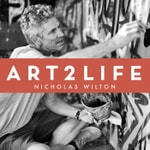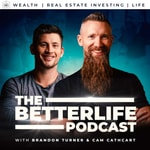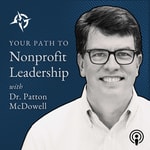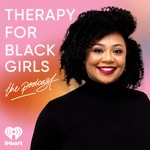Recovery Elevator – Details, episodes & analysis
Podcast details
Technical and general information from the podcast's RSS feed.
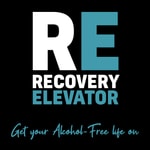
Recovery Elevator
Paul Churchill
Frequency: 1 episode/7d. Total Eps: 548

Recent rankings
Latest chart positions across Apple Podcasts and Spotify rankings.
Apple Podcasts
🇨🇦 Canada - mentalHealth
27/07/2025#87🇬🇧 Great Britain - mentalHealth
27/07/2025#99🇺🇸 USA - mentalHealth
27/07/2025#99🇨🇦 Canada - mentalHealth
26/07/2025#65🇬🇧 Great Britain - mentalHealth
26/07/2025#91🇨🇦 Canada - mentalHealth
25/07/2025#53🇺🇸 USA - mentalHealth
24/07/2025#92🇺🇸 USA - mentalHealth
23/07/2025#96🇺🇸 USA - mentalHealth
22/07/2025#85🇺🇸 USA - mentalHealth
19/07/2025#97
Spotify
No recent rankings available
Shared links between episodes and podcasts
Links found in episode descriptions and other podcasts that share them.
See all- https://www.instagram.com/p
11467 shares
- https://appsto.re/us/z8w_5.i
439 shares
- https://www.recoveryelevator.com/cafere/
413 shares
- https://www.headspace.com/
398 shares
RSS feed quality and score
Technical evaluation of the podcast's RSS feed quality and structure.
See allScore global : 59%
Publication history
Monthly episode publishing history over the past years.
RE 497: I Can’t - You Can - Take it
lundi 26 août 2024 • Duration 48:40
Episode 497 – I Can’t – You Can – Take It
Today we have Shelby. She is 38 years old and from Windsor Ontario. She took her last drink on December 23rd, 2023.
Sponsors for this episode:
Visit Better Help today to get 10% off your first month
Visit Exact Nature use code RE20 to save 20% off of your order
[04:10] Thoughts from Paul:
Paul seeks to soften the entry point to AA and simplify the first three steps. For many the steps are intimidating. They are nebulous, part dogmatic and for some there are simply too many God or higher power references. But the do make it clear many times that this God (higher power) is of your understanding. You can even use a red stapler as your higher power – they will fully support you.
The first three steps of AA:
1) We admitted we are powerless over alcohol
2) We came to believe that a power greater than ourselves could restore us to sanity
3) We decided to turn our will and our lives over to the care of God as we understood him.
Which can be broken down to:
1) I can’t
2) You can
3) Take it
Paul says he feels the most powerful part of AA isn’t the God stuff, it’s the group. The group is always stronger than the individual.
I can’t, the group can. Here you go. I’ll see you all again tomorrow.
[10:18] Paul introduces Shelby:
Shelby is 38 years old, lives in Windsor Ontario and works for a car manufacturer on the assembly line. For fun Shelby enjoys all sports, camping and hiking.
In high school Shelby was very athletic. When she was 15, she decided to focus on hockey and made it onto a junior team. She learned about hockey culture and part of that is drinking and partying. Due to traveling and playing hockey Shelby didn’t have time to drink much during high school.
While attending a development camp for hockey, Shelby had an injury that put her on the side lines. Throughout her time at Ohio State, doctors would tell her she was fine as she continued to suffer injuries that eventually required surgery. Shelby had dreamed of going to the Olympics and never considered she might not be able to.
She left school early and felt like a failure. Shelby knew her drinking was already an issue, and she needed a change of scenery. Shelby says she didn’t have an identity outside of being an athlete. Alcohol and being social became a distraction for her and she avoided playing hockey for a long time.
The older she got; the more Shelby didn’t feel like she had accomplished anything. Life after being an athlete was tough for her. Around 30 years old she realized she needed to make some healthy changes. She accepted an offer to play hockey with some friends and ended up getting coaching opportunities afterwards. She decided to do it and since she was getting back in shape, she decided to quit drinking for three months which led to almost two years.
After losing a close uncle, Shelby drank after his funeral. She continued to drink for a few years and tried using moderation techniques. At an alumni game, she was not able to play due to an unhealed injury. She showed up drunk and ended up losing her coaching job. After this she decided to quit drinking again.
Since quitting this time around, Shelby has started attending therapy. This has helped her uncover some of her issues. She does not care for AA and says in the beginning it was hard doing things that she used to do while drinking. Shelby deals with cravings by going for walks, listening to podcasts and using her quit drinking app. She enjoys doing things that she missed out on when she was younger. Shelby also looks forward to trying new things and traveling. Her clarity is so much better, and she loves that she knows she can make plans and keep them.
Shelby’s parting piece of guidance: start today and start small and take it slow.
Recovery Elevator
We took the elevator down; we have to take the stairs back up.
I love you guys. We can do this.
RE 496: One Way Street
lundi 19 août 2024 • Duration 58:16
Episode 496 – One Way Street
Today we have James. He is 40 years old and lives in Melbourne, Australia. He took his last drink on November 20th, 2023.
Sponsors for this episode:
Visit Better Help today to get 10% off your first month
Visit Exact Nature use code RE20 to save 20% off of your order
[04:16] Thoughts from Paul:
The Paris Olympic Committee opted to not sell alcohol. They were confident that they could have successfully applied to sell alcohol but still decided not to. In an article from NBC News, it mentioned the following: “While many people enjoy a casual drink, that’s not always the case. According to estimates by the French Public Health Society, 49,000 people are killed a year by alcohol consumption, which also causes 120 billion euros in damages.” Them choosing not to sell alcohol proves that things are changing around the globe regarding alcohol consumption.
Expanding on the topic of staying the course from last week’s episode, Paul shares that sobriety is a one-way street. He has yet to hear a story where someone with alcohol-free has gone back to drinking and was happy with the decision.
The common theme when it comes to what drove them back to alcohol was that they drifted from the AF community and attended less meetings or stopped altogether. They second part of this is they all said it was not a pleasant experience and many ended up right back where they were.
Do not beat yourself if you do some field research. We often need those reminders to reinforce internally that you made the right decision. Paul says he hasn’t met a single person who said they made the wrong choice when they decided to choose an alcohol-free life.
[11:03] Kris introduces James:
James lives in a rural area south of Melbourne, Australia. He is married with two kids, enjoys going to the gym and recently started playing football again.
James says he had a normal upbringing. He put a lot of pressure on himself and felt like he was always being watched. Alcohol entered his life when he was around 14 and drinking helped him turn things off as an escape and he felt freedom.
At 18, James moved out of his parent’s home with some older friends and was drinking on extended weekends but still very functional. When he was 20, he ended up moving to London where he felt complete freedom to do whatever he wanted, including living in a pub. James continued the weekend binge drinking with very little consequence.
After moving back to Australia in his late 20’s, James started a successful business and met the woman who is now his wife. Over time his feelings of not being “good enough” in many areas of his life were very stressful and found James drinking more to self-medicate and disconnect.
Towards the end of his drinking, James says he and his wife were very disconnected. He was acting out and taking a lot of risks. After confronting him one day, James told her his life was a mess and she told him it was either rehab or leaving. James opted for the easier option of leaving and chose an Airbnb close to a pub where he could drink and gamble. After a few days of this bender, his wife showed up and lovingly took him home. He started doing research but was scared to commit to inpatient care due to running his business.
James eventually found an outpatient treatment that would suit him. He has been alcohol-free ever since. Working on his connections with his family is something James is really proud of. He looks forward to doing the step work with his sponsor in AA and growing stronger spiritually.
James’ biggest fear around quitting: feeling his feelings and having to digest them.
James’ favorite resources in recovery: Recovery Elevator podcast and a book with spiritual principles for each day that he can meditate on.
James’ parting piece of guidance: Stick to it, keep showing up day by day and the magic happens down the track.
We are the only ones that can do this RE, but we don’t have to do it alone.
I love you guys.
RE 487: How Would You Walk?
lundi 17 juin 2024 • Duration 45:46
Episode 487 – How Would You Walk?
Today we have Sarah. She is 45 and lives in Indiana. She took her last drink on December 31st, 2022.
Let’s talk AF International travel with Recovery Elevator. We’ve got some incredible trips in the works. We’re going to Vietnam for 12 days in January 2025. Then Back to Costa Rica for our 4th trip to the Blue Zone in April 2025, and then, we’re going back to Peru in October 2025 where we’re going to the Inca Trail and work with Non-profit Peruvian Hearts again.
[02:42] Thoughts from Paul:
The World Heart Federation published a policy brief in 2022 staying there is “no level of alcohol consumption that is safe for health.” There was and still is a collective belief that alcohol is good for you. This is especially prominent in the wine culture.
The paradigm is slowly cracking which is a huge step in the right direction. When Paul started Recovery Elevator in 2015, you couldn’t find that line anywhere. It was almost customary to see a line that says something like “studies show moderate alcohol consumption can improve heart health and longevity”. Today the tides are turning and a narrative that alcohol can wreck your world (aka, the truth) is emerging. People are waking up to the lies that Big Alcohol has sold us.
Check out this recent article about a new phenomenon called BORGS explains what these are and then follows it up with the snippet about alcohol being shit.
[09:18] Paul introduces Sarah:
Sarah is 45 and lives in Indiana. She is married with two kids and works in marketing. When she isn’t running the kids to their practices and games, she enjoys exercising, reading and backpacking.
Sarah parents divorced when she was 11 and she grew up with her mother who she was very close with. She doesn’t recall alcohol being very present in their lives. Sarah didn’t drink much in high school but in college and into her 20s, everything she and her friends did involved alcohol. She always knew her drinking looked a little different than everyone else’s, but didn’t identify it as a problem.
When Sarah was 35, her mother was diagnosed with brain cancer. Sarah quit working so that she could care for her mother through the diagnosis. Her drinking increased as she dealt with being a caretaker, having a family in addition to not working.
After her mother died four years later, Sarah says she did not know how to deal with life. She would drink into a blackout almost daily and was stuck in the cycle of wanting to quit but not being able to. Sarah began to worry that it might not be possible for her and worried that she would disappoint her mother if she wasn’t able to quit.
In time, Sarah found sober podcasts and tried medications to help. She says Antabuse worked, but she would stop taking it in order to drink. No one knew she was taking it to try and quit and Sarah feels that by not sharing, she always left the door open to drink again.
Sarah knew something had to change and decided to come clean with her husband. Being active in the Café RE community helped Sarah gain the courage to choose a quit date and write a letter to her husband letting him know what was going on. Sarah says she received a lot of support from him.
After the physical withdrawals, Sarah felt hopeful. As the months went on, she protected her sobriety by avoiding situations where there was drinking, and she began to gain more confidence. Sarah says that when she has thoughts of drinking, she does chooses to put her energy into her sober resources instead.
Sarah’s best sober moment: experiencing the Northern Lights with her son
Sarah’s parting piece of guidance: never quit quitting.
[41:14] Outro:
Paul invites listeners to answer some questions not with words in their minds, but in how they carry themselves.
How would you walk if…….?
Café RE – promo code OPPORTUNITY waives set up fee.
Recovery Elevator
Go big, because eventually we’ll all go home.
I love you guys.
RE 398: This Moment Always Wins
lundi 3 octobre 2022 • Duration 01:00:00
Episode 398 - This Moment Always Wins
Today we have Adam. He is 30, from Vancouver, and took his last drink on February 8, 2013.
We have many upcoming events:
Costa Rica
For Info: https://www.recoveryelevator.com/events/
Highlights from Paul
Paul celebrated his eight-year recovery milestone and is thankful for all the support he gets from listeners, family, friends, and the Café RE community.
Paul’s insights include: alcohol is sh!t; addiction is an invitation to make a sweeping change in your life; burning the ships is part of the journey; the opposite of addiction is connection; focus on the wins; admit you are wrong when you need to, in real-time; you have to take action; don’t worry about the sobriety clock, keep doing the work; join the party - the AF movement is taking off; be kind to others, help others; be of service; leverage your drinking problem to expand your life; be mindful of the company you keep; there is nothing wrong with you; not drinking makes you a bad-ass;
Better Help: www.betterhelp.com/elevator - 10% off your first month. #sponsored
[13:26] Adam has been sober for nearly ten years. He is a personal trainer, nutritionist, breathwork therapist, mental health, and sober coach. He loves cold plunges, spending time in nature, traveling, and spending time with his dogs.
Adam grew up in Vancouver and was exposed to addiction early on. He was bullied a lot in high school, which led to anxiety, depression, and insecurity. He was 13 the first time he drank or smoked weed. He knew it wasn’t smart, but it gave him a sense of community. With a long family history of alcohol abuse, Adam knew he was in trouble the first time he drank.
Adam got his apartment and car at age 15. He made poor decisions, including steroids, drinking, cocaine, being in a gang, and smoking. After a death threat, he moved to another province, got a job, and his drug use escalated. He sold drugs, and it was attractive to him at the time. He was stabbed during a fight. At 16, a buddy of his died in his arms. Steroid use caused Adam to default to anger frequently. He was aggressive. Adam said it took at least ten wake-up calls before he was ready to address his addiction. He was exposed to a lot of violence and death with the people he spent time with. At 19, during a drug deal, he was kidnapped and held captive by some bad people. During that incident, he had an out-of-body experience. When he was released, he was hospitalized. He crashed when in the hospital. A spiritual awakening occurred for Adam. Adam described it as powerful, and it continues to inspire him to live a better life. The last time he used it was on his 21st birthday. He called his Mom, and she let him come home.
The first two years of sobriety were the hardest for Adam. He had lots of PTSD from his gang experience. He had two suicide attempts. Adam went to his first AA meeting. A person said to him, “If you kill yourself today, you are killing the wrong person because you don’t know the person who you can become.” Breathwork became a big part of his recovery. Learning to accept and demonstrate his emotions was challenging, but Adam continues to learn to manage his feelings. He worked the steps. He saw a psychologist/neurologist and was diagnosed with severe brain injury, PTSD, anxiety, and depression. None of the medications helped. Breathwork and exercise help him manage his anxiety and depression.
[57:50] Kris’ Summary
After a rough week, Kris remembered, “you don’t have to get sober for the rest of your life today.” Trust the process.
Upcoming events, retreats, and courses:
- You can find more information about our events
Resources
Connect with Cafe RE - Use the promo code OPPORTUNITY to waive the set-up fee.
Recovery Elevator YouTube - Subscribe here!
Recovery Elevator-
We are the only ones who can do this, but you don’t have to do it alone.
I love you guys.
RE 397: The Ultimate Connection
lundi 26 septembre 2022 • Duration 58:32
Episode 397 - The Ultimate Connection
Today we have Santino. He is 43, from Massachusetts, and took his last drink 43 days ago.
We have many upcoming events:
AF Photo Class
Restore
Regionals
Ukulele
Costa Rica
For Info: https://www.recoveryelevator.com/events/
Highlights from Paul
Paul shares that our actions are felt for seven generations in our lineage. When you quit drinking, do the inner work, the ripple effect can last 150 years.
Eckhart Tolle defines love as recognizing oneness in a world of duality. The ego craves separation, judgements. When we are drinking, we are reinforcing that divide. The worst side effect of alcohol is isolation. But when we drop the bottle, we give ourselves a chance to find love, or maybe let love find us.
Congratulations Dusty and Lotus on your recent nuptials.
Love yourself and love yourself first. Love in recovery can be rediscovering nature, it can be planting a garden, it can be zipping around on a one wheel, it can be learning a new instrument, picking up an old instrument. It can be laughter.
Make sure to stay tuned to the end of the episode. Our outro music is from one of our Café Re members, Ron.
Better Help: www.betterhelp.com/elevator - 10% off your first month. #sponsored
[9:50] Santino works for a nonprofit homeless organization; he is married with a son and enjoys being a father.
Being present, in the moment and the ability to remember the moment are the early perks of sobriety for Santino. His first taste of alcohol was at age 10. He took a sip of his Dad’s drink and enjoyed the taste.
Paul and Santino discussed how college culture and military culture both celebrate drinking. Santino said his drinking was normalized because of the culture of drinking in the military. His wake up calls around drinking came when he left the military. He got his first DWI and went to court ordered AA. He drank before and after the meetings.
Santino noticed a pattern of lying, about all kinds of things, but particularly about what he was drinking, when and how much. AA is now part of his life. He has learned to say “alcoholic” to be accountable for what was happening with him. He is well informed about withdrawal and his most recent experience was painful and a reckoning. Santino encourages listeners to be honest with themselves. Give yourself grace AND accountability. He did a 72 hour fast. He listens to the Recovery Elevator podcast. He burned the ships with his childhood friend, his sister and his wife.
The Uvalde shooting had a major impact on Santino and became an impetus for him to quit drinking.
[55:20] Paul’s Summary
Paul introduces Ron who is a musician who wrote and performed today’s outro music.
[56:51] We walk each other home.
Upcoming events, retreats, and courses:
- You can find more information about our events
Resources
Connect with Cafe RE - Use the promo code OPPORTUNITY to waive the set-up fee.
Recovery Elevator YouTube - Subscribe here!
Recovery Elevator-
We took the elevator down. We need to take the stairs back up.
I love you guys.
RE 396: The Brain and Alcohol | Genetic Predisposition
lundi 19 septembre 2022 • Duration 01:00:49
Episode 396 - The Brain and Alcohol – Genetic Predisposition
Today we have Rene. He is 33, from California, and took his last drink January 18, 2022.
Register for RE’s AF Photo Class: https://www.recoveryelevator.com/afphoto/
SoberLink: https://www.soberlink.com/recovery-elevator
Highlights from Paul
Alcohol has many biochemical and neurochemical effects on the brain. There are dramatic changes in the neurons that control the release of serotonin when we consume alcohol. Serotonin is the feel-good chemical and 80% of it is created in the gut. When we mix alcohol and serotonin it gets converted into acetaldehyde. This acetaldehyde acts as a toxin.
Alcohol changes the relationship between the hypothalamus, the pituitary gland, and the adrenals. The adrenals release chemicals called epinephrine and cortisol, which are involved in the longer-term stress response.
People who consistently drink are more stressed out at baseline. They have more cortisol released form their adrenal glands even when they are not drinking. Consequently, they feel more stressed and more anxiety when they are not drinking. Many scientists agree that stress is the number one contributor to disease.
When we overload the brain with alcohol, it’s almost too much to process and the activity of neurons in the hippocampus, which is involved with memory formation, are strained and then they completely shut off – that is a blackout. You can still be functioning, some high functioning, but the memory forming part of your brain, the hippocampus, clocks out.
Many believe that alcoholism is hereditary. Recent studies, including one of twins conducted by Dr. Gabor Mate indicate genetics may not be as much of a contributor as we once thought. Epigenetics indicate that environment influences gene expression and gene mutations. Science is beginning to accept that environmental factors cause or influence addictions. The ten-fold increase in alcoholism supports that theory.
Dr. Andrew Huberman’s podcast provides much more detail on the science behind many of these theories. Take a listen if you would like to learn more:
https://open.spotify.com/episode/2ebY3WNejLNbK47emgjd1E?si=bf71f9f038bc4826
Better Help: www.betterhelp.com/elevator - 10% off your first month. #sponsored
[14:37] Rene has been sober for over six months. He is 34 and a single Dad He is an entrepreneur and enjoys going to the gym, exploring the outdoors, hiking and the beach.
Rene is first generation American, and his family is very supportive. He grew up around drinking, it was normalized.
He got drunk once during his senior year of high school. He didn’t drink again until after he broke up with his first girlfriend years later. Drinking became a reward, then it became a daily habit. Working in the restaurant industry, drinking was expected. He was fired once for drinking.
It didn’t occur to Rene that drinking was a problem. He began counseling and the counselor recommended AA. Rene found it easy to see the similarities; he felt like he found his people. He was planning to join the military when he learned he was about to become a father. Eventually, he won sole custody of his daughter which dashed his hopes of joining the military. The combination of issues sent him back to drinking. He controlled his drinking for over a year, and it worked until it didn’t.
Rene went back to AA and got a sponsor and a fitness coach. Consistency helps him maintain his sobriety. He is feeling mentally and physically strong.
[57:35] Kris’s Summary
Seasonal shifts can put you on edge. Share your experience: [email protected].
Upcoming events, retreats, and courses:
- You can find more information about our events
Resources
Connect with Cafe RE - Use the promo code OPPORTUNITY to waive the set-up fee.
Recovery Elevator YouTube - Subscribe here!
Recovery Elevator-
We took the elevator down. We need to take the stairs back up.
I love you guys.
RE 395: Can You Have Fun Without Alcohol?
lundi 12 septembre 2022 • Duration 54:25
Episode 395 - Can you have fun without alcohol?
Today we have Jim. He is 50, from New York, and has been sober since June 19, 2022.
Curious Elixirs: https://curiouselixirs.com/
Highlights from Paul
Paul and our listeners would like to hear from prior podcast guests. Please send us a note (approximately 200 words) to let us know how you are doing. We would love an update on your sobriety journey. Email: [email protected]
Yes! You can have fun without alcohol. Paul just finished hosting the Bozeman retreat, and it was FUN. One of the highlights was an ecstatic dance party. Imagine 60ish sober people dancing on a basketball court in the afternoon. There was also a silent dance party on the last night. Paul loved watching and participating in pure joy and fun.
Sober fun is a learned skill, but it’s worth it. You learn to have fun without an external substance. Life is like a movie. Consider yourself the director. You can guide or nudge it any way you want. Leave room for other actors in your life and let them act their way. It makes the experience rich. If you are not having fun, check your inner narrative. At times we let external rules guide us when we have fun. Forget those rules and have fun now.
Stay tuned to the end for a poem written by one of our listeners, and today’s outro music was written and performed by Michael P, a member of Café RE.
Better Help: www.betterhelp.com/elevator - 10% off your first month. #sponsored
[10:02] Jim has been sober for two weeks. He had almost two years and drank, and now he is back on track. He’s had 699 sober days in the last 700. Jim is married with two kids and loves reading on his front porch.
Jim attributes his recent field research to not using his tools.
Growing up, Jim drank in high school with his buddies. The quest for beer was their primary goal. College was more of the same. After college, it didn’t feel as good. Drinking is part of his work culture and was celebrated. His first attempt at sobriety was at age 25. He stayed sober for three months, then returned to drinking. It was part of his job, his social circles, and his life always included drinking. Alcohol pushed back his fears.
In his early 40s, he started to realize he had a problem but didn’t know how to go about quitting. He didn’t love AA. By 45, he knew his drinking had become unsustainable. Drinking was like a low-grade hum that perpetually played for him. He began drinking alone at home, where nobody would bother him, and he could drink like he wanted.
Gradually he began exploring sobriety. He would accumulate a few months and do more field research. He read “This Naked Mind.” When the pandemic hit, he decided to make more efforts to maintain sobriety. He joined Café RE in July of 2020, which was his turning point. Earlier this year, he started traveling more for work. He now realizes he stopped using his tools, including Café RE. He only drank for one day. It was scary; he was a wreck and knew he couldn’t do this anymore.
Jim writes every day. It helps him get the thoughts out of his head and on paper.
[49:33] Paul’s Summary
Paul reads a poem, “Connection,” by Kelley A, Café RE Go Group.
[51:05] Outro Music, The Light Inside, by Michael P.
Upcoming events, retreats, and courses:
- You can find more information about our events
Resources
Connect with Cafe RE - Use the promo code OPPORTUNITY to waive the set-up fee.
Recovery Elevator YouTube - Subscribe here!
Recovery Elevator-
We are the only ones who can do this, but we don’t have to do it alone.
I love you guys.
RE 394: Fixin' to Grow
lundi 5 septembre 2022 • Duration 01:00:24
Episode 394 - Fixin’ to Grow
Today we have Kristie. She is 47, from Michigan, and has been sober since May 2020.
Ditch the Booze/Mindfulness and AF Photography 101: https://www.recoveryelevator.com/cafere/
Highlights from Kris
Return to school is here and is the catalyst for conversations about expectations. Growing up, the letter on the report card was the measure of success. Kris has begun to consider praising the work instead of the result.
Neuroscientists have identified two different mindsets: the fixed mindset and the growth mindset. A fixed mindset looks at intelligence as static. The effort is pointless – you’ve got it, or you don’t. It’s all about the result. The growth mindset is more about a learning goal. The effort is seen as a path to mastery.
What is your goal in recovery? Language matters. Think about the metrics. If you are fixed on being alcohol-free and have a slip, you might feel like a failure. Embrace the growth in yourself and let that be enough.
Better Help: www.betterhelp.com/elevator - 10% off your first month. #sponsored
[11:29] Kristie has been surise for two years. The word sober doesn’t resonate with Kristy. She wants to be fun and exciting and enjoy every moment. Kristie believes that language creates our reality. Through journaling, she came up with the word surise – it brings her energy, light, and love. Kristie believes surise is yours – the opportunity to be your authentic self.
Kristie is from West Michigan and is an academic advisor. She is married and has two daughters. She loves traveling, the beach, the woods, nature, and connecting with people.
Growing up, her parents rarely drank, but they did smoke. After her parents’ divorce, she assumed much responsibility for her younger brothers. She was the conduit between her parents. She was involved in theater, student government, and dancing.
Kristie went to college and was ready to rescind the role of the responsible oldest child. Earning a degree was essential to Kristie. She went to school and partied and enjoyed drinking and being social. She adopted the work hard, play hard mentality and always drank to get a buzz. She put herself into some risky situations and was raped. Alcohol helped numb the pain, and she learned to carry on.
Kristie met her husband in college, and drinking was part of their relationship. Drinking was a coping mechanism for the stress of parenting. Over the years, her drinking progressed from beer to wine to vodka. After her father died, Kristie’s drinking became very dark. Drinking was a reward, a way to avoid loneliness, and it served many purposes.
Several years ago, Kristie’s husband announced that he was planning to quit drinking. He did, and she couldn’t follow suit. After her father-in-law died, they were both drinking again and went backward. Kristie read “This Naked Mind” and listened to Annie Grace’s podcast. Paul Churchill was Annie’s guest, and something clicked for Kristie. She could hear herself in other people’s stories. She joined Café RE in 2020 and went to her first women’s AA meeting. She quit drinking for several months and returned to drinking when the pandemic began. In May of ’20, she found a small group of RE members all over the US, and they held each other accountable.
Kris’s Summary
Look at your mindset. Ask yourself without judgment, are you holding on to absolutes? What is your measure of success? Do you find joy in the results or the process? Wherever you are is okay. Show yourself grace. Change the narrative. Surrender to the process. Let go of old ideas.
Upcoming events, retreats, and courses:
- You can find more information about our events
Resources
Connect with Cafe RE - Use the promo code OPPORTUNITY to waive the set-up fee.
Recovery Elevator YouTube - Subscribe here!
Recovery Elevator-
We are the only ones who can do this, but we don’t have to do it alone.
I love you guys.
RE 393: Hello Listeners
lundi 29 août 2022 • Duration 56:43
Episode 393 - Hello Listeners
Today we have Alina. She is 32, from Northern California, and has been sober since June 20, 2022.
Fire Brew: https://www.drinkfirebrew.com/
Ditch the Booze/Mindfulness: https://www.recoveryelevator.com/cafere/
Highlights from Paul
If you are in a cycle of continuous Day ones, keep showing up and listening to the podcast. We believe in you.
If you have quit drinking, don't forget incredible short memory can get us any time. Don't look back. That old way of life didn't work. Keep building the new.
If you are a normal drinker here to support someone, we are glad you are here. The opposite of addiction is connection, and we appreciate your support. The healing process is a collaborative effort that requires both parties to come together.
If you are in your teens or twenties, you are learning vital lessons and building resilience. When the dust settles, and your normal drinker friends begin to phase out of the party years as they marry and have kids, you will have acquired unique life skills that your friends don't have. Your unique skills revolve around presence, listening to your intuition, taking life as it comes, loving yourself and others. You're more grounded. Your roots go deeper. Also, be patient. I think it's harder to quit drinking at a younger age, but with time, and each year around the sun, some of those challenges get easier. Time is working in your favor.
If you treat or support someone who struggles with, what is addiction? Addictions are adaptive behaviors leveraged to survive in unhealthy environments. Addictions are present when something is out of balance or not in harmony with our environment.
Keep the thinking mind in check. The mind has 60,00-70,000 thoughts per day, and science has shown that most of them are not valid. Keep doing the inner work, find your people, and show the world how it's done.
Better Help: www.betterhelp.com/elevator - 10% off your first month. #sponsored
[13:04] Alina has been sober for two weeks. She has three kids, loves being outside, cooking, and reading. She immigrated to the US from Ukraine, is the youngest of seven, and had her first drink at age 16. Growing up, she had the impression that an alcoholic was someone who drank every day.
In 2018, Alina had her first blackout. She resolved to do something different. She listened to "This Naked Mind" by Annie Grace. Moderation never worked. During the pandemic, Alina went on vacation to Mexico and drank daily. Alina continued to learn about recovery, and she learned to see the similarities in other people's stories. She is an active member of Café RE and enjoys the chats.
Paul's Summary
Listeners, stick together. Choose love over fear. Choose peace over being right. If the conditions are right, we bloom as a species. If the conditions aren't right, we don't. Humans are so close to blooming on a large scale, and addiction is fast-forwarding this process. Addiction forces us to surrender, open up, and say yes to the flow of life.
Upcoming events, retreats, and courses:
- You can find more information about our events
Resources
Connect with Cafe RE - Use the promo code OPPORTUNITY to waive the set-up fee.
Recovery Elevator YouTube - Subscribe here!
Recovery Elevator-
Lighten Up.
I love you guys.
RE 392: One Week Without Alcohol
lundi 22 août 2022 • Duration 01:02:35
Episode 392 - One Week Without Alcohol.
Today we have Megan. She is 34, from Florida, and has been sober since June 22, 2021.
Gruvi: https://www.getgruvi.com/
Highlights from Paul
Stacking days, which is a day here, and a couple of days there, is fantastic, but your body and mind will respond faster to continuous sobriety, and I think a week is the most doable chunk of time. I know for me, even 30 days was overwhelming.
Day 1: Drink water, then more water. Eat at least one full, healthy meal. Your body is detoxing today. Anxiety is part of this. Embrace the process. Remember the pain. Exercise will help with sleep. Sleep won't be great, and night sweats are expected. Expect cravings, and ice cream is your friend.
Day 2: Expect to be tired, exhausted, and anxious. Drink water, sleep, eat ice cream and worry about sugar later.
Day 3: Sleep should improve and welcome back appetite. Eat a healthy breakfast.
Day 4: Your body is healing. Drink water, sleep and eat (sugar does help with cravings.)
Day 5: What happened? You may be sleeping better, and you are hungry. Eat some healthy food and don't worry about calories. Your brain is coming back on, which has two sides: your cognition is better, and the thinking mind is on overdrive.
Day 6: Your confidence is building, and your energy begins to return. Inflammation begins to dissipate.
Day 7: Sleep! Cellular restoration. Mental clarity improves.
Tips for week one:
Drink plenty of water
Exercise for at least 20 minutes. It gets endorphins going
Eat at least one meal with healthy greens
Put pen to paper and capture your insights
Remember, it's a week and not forever.
Seven days is the start of the healing process. Your seven days await – go get 'em.
Paul describes PAWS (Post Acute Withdrawal Symptoms) in this video
https://www.youtube.com/watch?v=esHLnz-BUXw&t=1s
Better Help: www.betterhelp.com/elevator - 10% off your first month. #sponsored
[15:40] Megan has been sober for over a year. She lives in Orlando, has two kids, is a social worker, and is getting a master's in criminal justice. She loves to travel and has been to 25 countries. She loves the beach, music, theater, working out, and theme parks.
Megan grew up in a conservative religious home with no alcohol in the house. Her grandfather was a recovering alcoholic. Alcohol was a big part of her family history, and Megan experienced a lot of generational trauma. Megan's father passed away when she was 15, and her childhood abruptly ended. Coincidentally she had her first drink that year.
Megan started using alcohol as a coping mechanism in her early twenties. Her marriage, work, and being a grown-up were a lot to manage. In 2021 she started working for a men's prison, which changed her life. Giving something back and witnessing other people's trauma helped her harness her inner strength. Megan was able to share her story and learned to adopt solid self-care practices. Slowly, she started to heal.
Today, Megan sees sobriety as a beautiful way to live, even if incarcerated. She credits the men at the prison with helping her to get sober. Her sobriety tools include self-care, Café RE, leveraging an accountability partner, focusing on the good in life, and great friends. Instagram: magicalsobermama
Kris's Summary
Together is always better. Kris just returned from the Bozeman retreat, and he loved getting to see all the participants.
Upcoming events, retreats, and courses:
- You can find more information about our events
Resources
Connect with Cafe RE - Use the promo code OPPORTUNITY to waive the set-up fee.
Recovery Elevator YouTube - Subscribe here!
Recovery Elevator-
We are the only ones who can do this, but we don't have to do it alone.
I love you guys.




